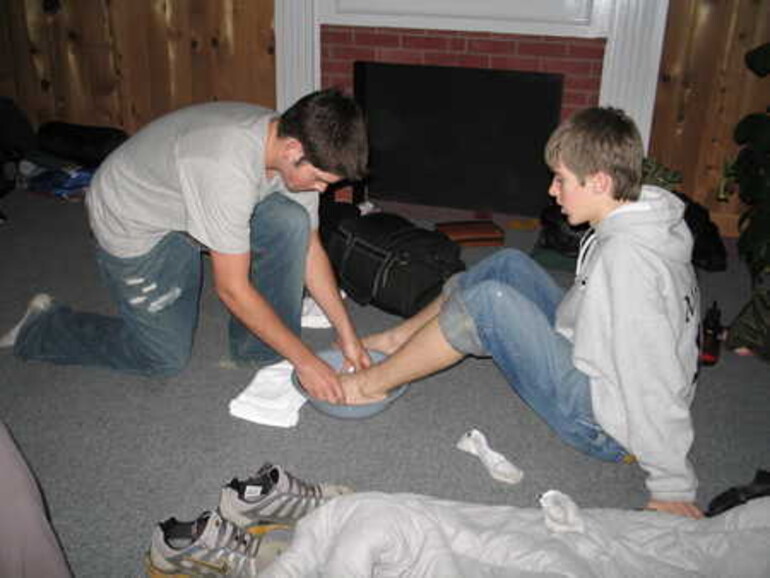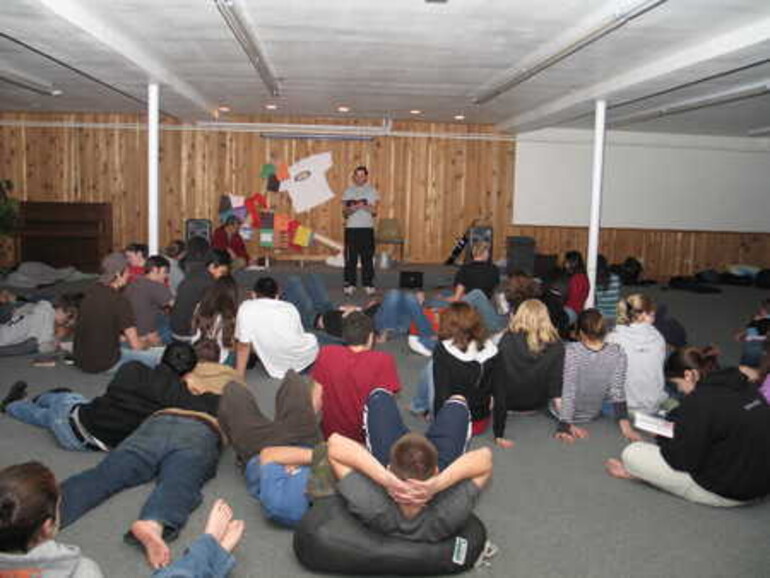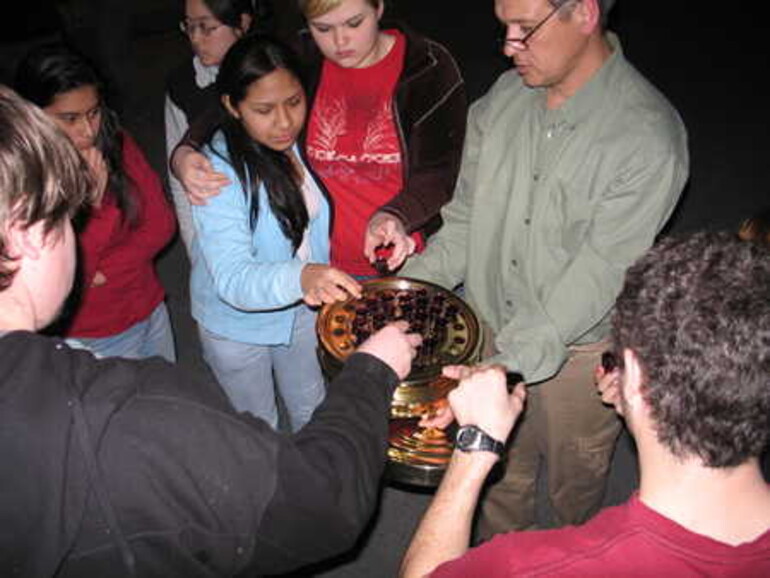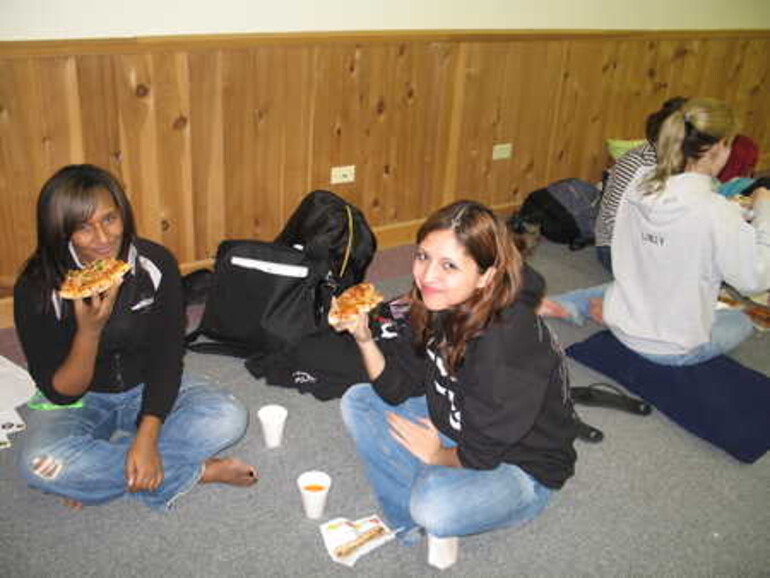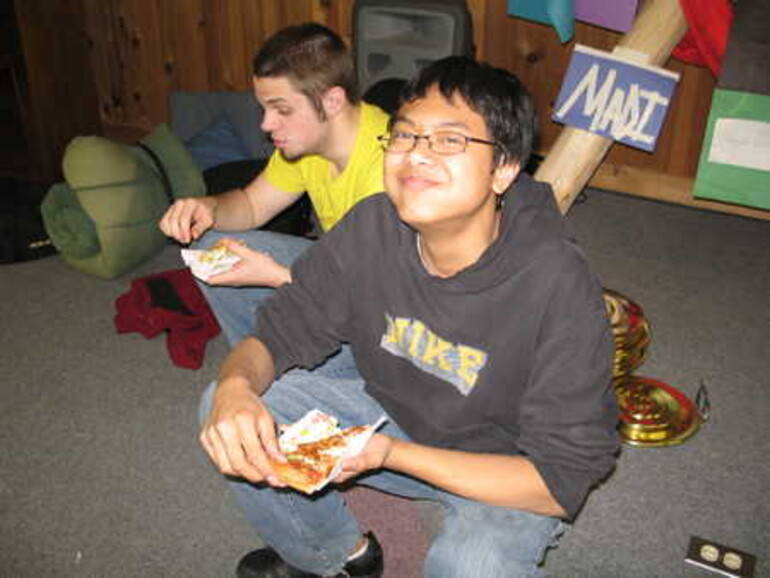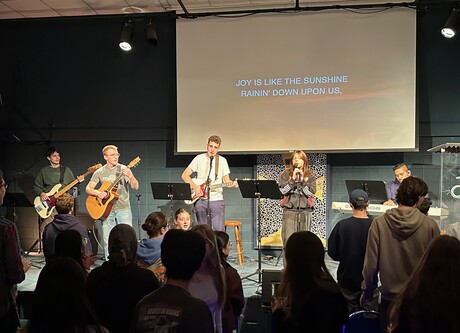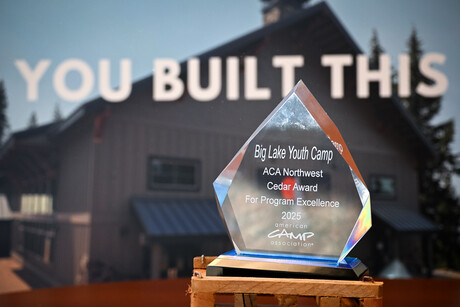Even just the idea of not eating for 30 hours can make a stomach growl. What took place starting on Friday, March 2, at 1 p.m. and ended on Saturday, March 3, at 7 p.m. was a life-changing experience for everyone who participated in the 30-hour famine at Milo Adventist Academy.
Schools, churches and many youth groups around the nation also participated in the famine. Milo students stayed overnight in the student center and were only given water, fruit juice and jello to keep their blood sugar at a healthy level. The fundraiser raised money for World Vision, which takes care of famine areas and Children of War rehabilitation camps in Third World countries.
More than 60 students at Milo participated, and more than 60 lives were changed. The students raised approximately $2,300. The government contributed three times the amount raised, making the grand total about $9,200.
Students played games to help them better understand what children go through to survive. Some students had to wear backpacks full of books while others had to wear blindfolds to imitate being blind. Another game was the food drop where balloons had slips of paper that said a food name and students had to sit on the balloons to pop them to get the slip of paper.
The game that surprised everyone was played at 12:30 a.m. on Saturday. Students were awakened by a blow horn and listened to a story about a little boy and the struggles he went through. After the story was over, the students got into their groups, and they had to answer questions from the story to gain imaginary food for their group.
Saturday morning, students boarded the bus and went to the Manor House in Roseburg to visit and sing to the elderly. Nichole Briones, the student association officer who organized the event, said, “It gave us a chance to grow spiritually, and it was a learning experience for everyone.”
At the close of the famine, the students celebrated communion. They also had the chance to read their favorite verse from the Bible. There was no hesitation in sharing, and students realized why they were really there. The service lasted for about an hour and a half.
To break the fast, students had a hearty feast of pizza and Subway sandwiches. Sarai Avitt-Blackburn, a junior from Toledo, Wash., said, “The thing that really touched me was that to be able to eat, we had to be served by another student, and we had to serve someone else before we could start eating.”
Those who had stayed in the dorm noticed right away that those who had participated in the famine were changed. Not only did the fundraiser bring in money, but it also helped the students realize how much people in America take the simplest things for granted. Students who experienced the 30-hour famine now know how truly blessed they are.




